I’ve spent a lot of time sampling my babushka’s (grandmother, in Russian) amazing cooking. Though my babushka knows her way around those good old Russian comfort foods and other Eurasian favorites like the Georgian chicken satsivi, she doesn’t limit herself to the foods with which she was brought up.
She’s adventurous, trying her hand at a wide array of different cuisines. I’ve learned a lot from her about life, cooking and food, all of which I think she approaches with her own pizzaz. Here are some of the lessons I picked up eating at my grandmother’s.
1. Potatoes are life
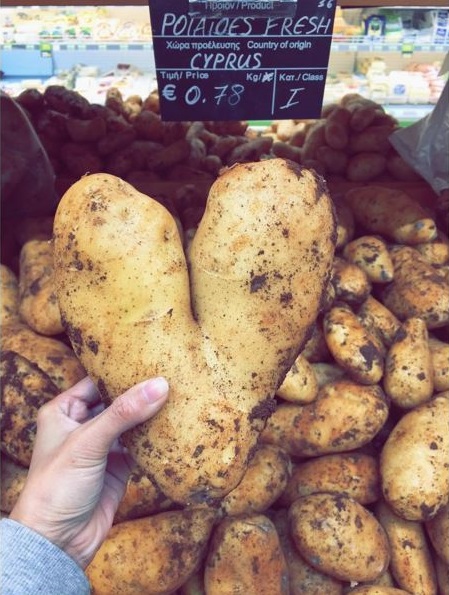
Photo courtesy of @glaizadaphne on Instagram
Honestly, I don’t think I need to say more than that. Potatoes are a staple of many cuisines, and Russian cuisine isn’t excluded. If I’ve learned anything from my babushka, it’s that potatoes are a beautiful, wonderful creation that can be added to truly any dish.
2. If something is a “salad,” it doesn’t necessarily mean it’s going to be light
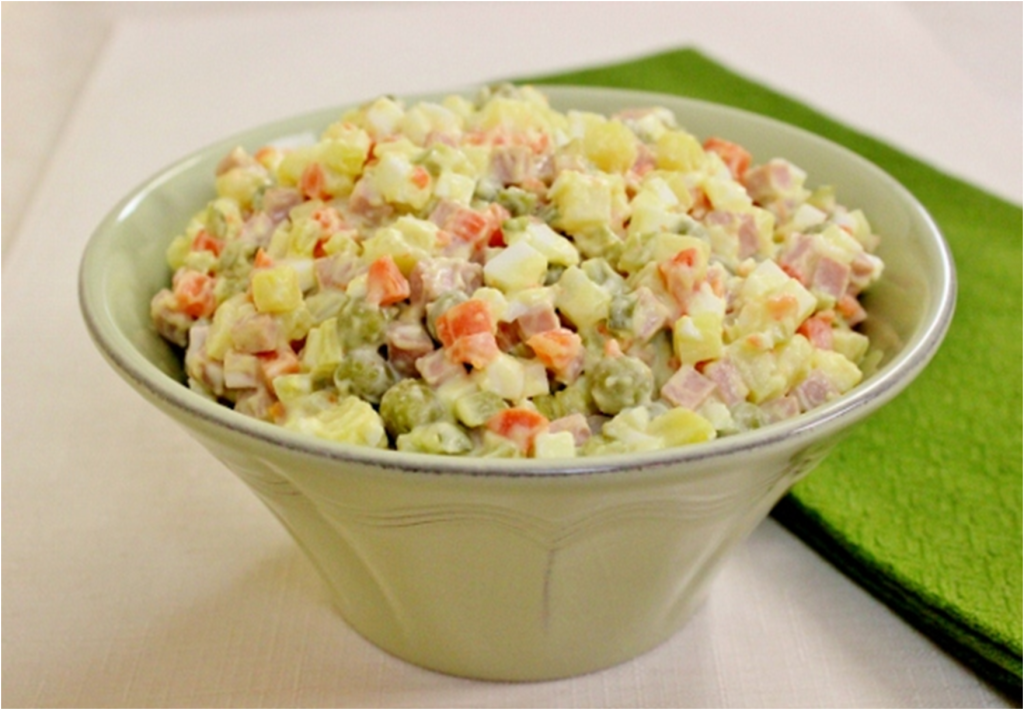
Photo courtesy of olgasflavorfactory.com
There are different salads presented in my grandparents’ house: fresh, summer salads, root salads, tomato salads, etc. One however always struck me as interesting: Russian salad or salad olivier, a surprisingly delicious, albeit kind of gross looking dish, that is made up basically of cooked potatoes, peas, carrots and other vegetables covered in mayonnaise. I’d liken it to creamy, vegetable glop. But tasty glop.
3. Everything’s better with sour cream on it
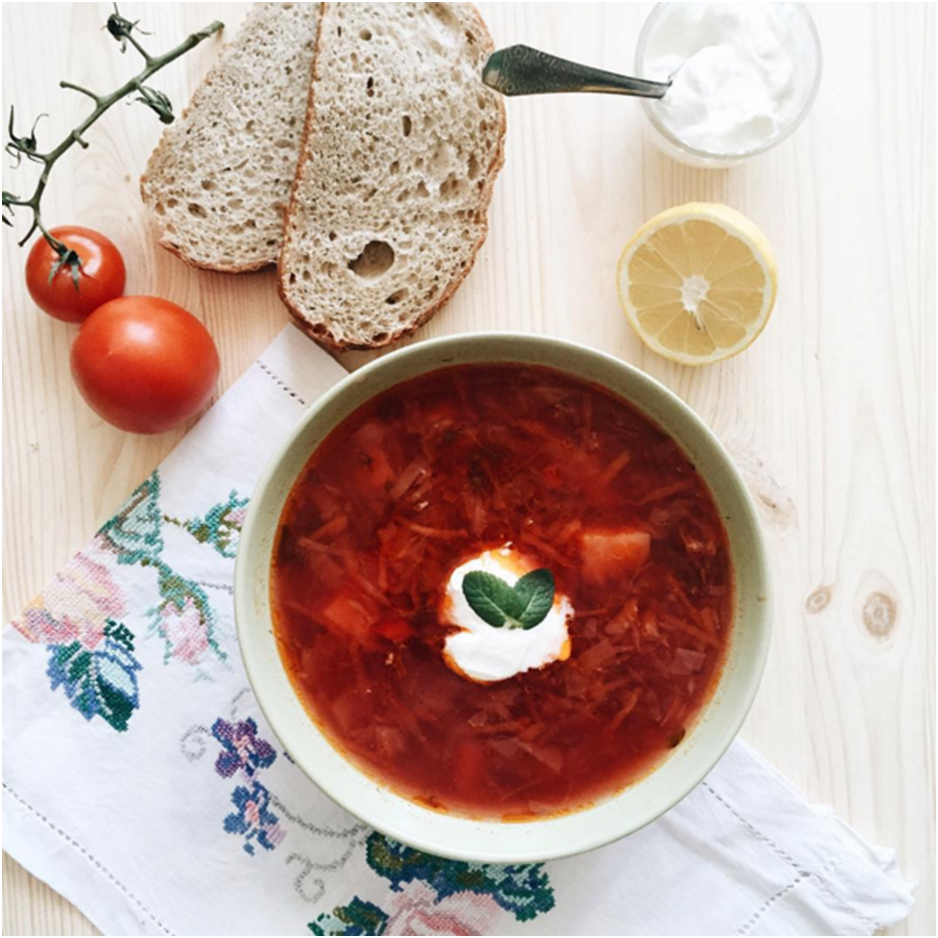
Photo courtesy of @oksanaskora on Instagram
You’re having borscht with dinner? Add some smetana (sour cream). Blini (Russian pancakes) with caviar? Add some smetana. Pelmeni (Russian dumplings)? Even more smetana. Sour cream is almost always the answer.
4. Vegetables (and meat) are best when mixed with flour and fried
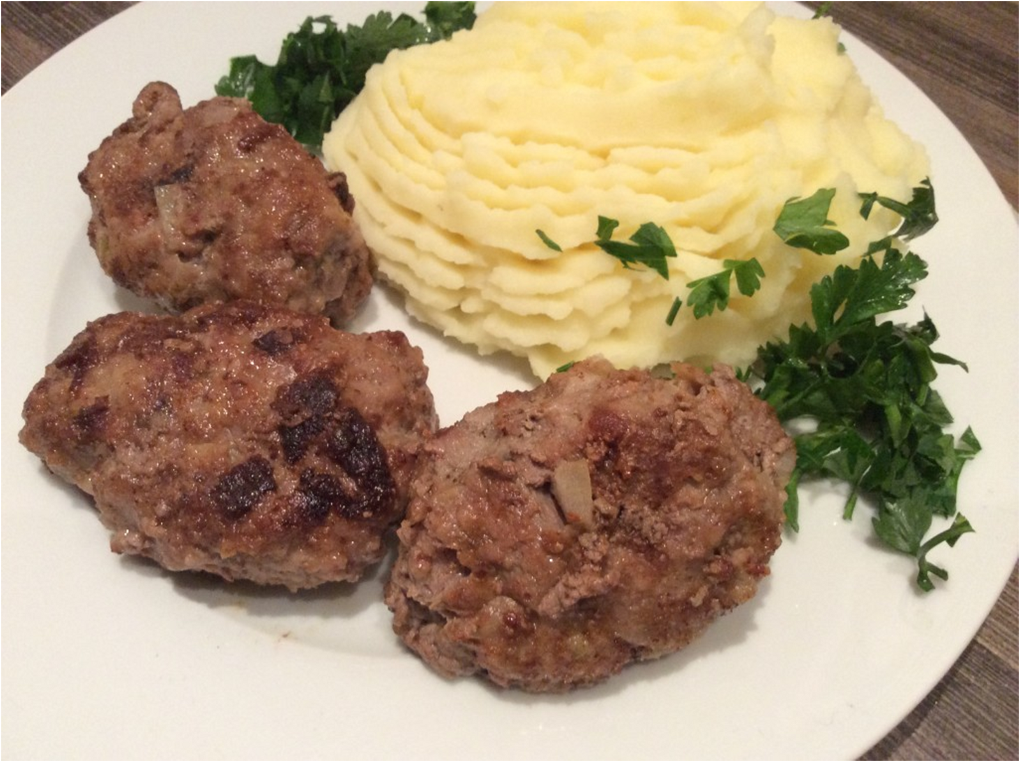
Photo courtesy of myrussianfood.com
One of my favorite recipes from my babushka is her fried zucchini – which I’d like to say outright is not a Russian dish. She slices zucchini paper-thin, adds a layer of flour to each side and puts it in oil in the pan. Another classic in my grandparents’ house is the good old cotleti, which is basically like a meatball: meat and flour fried in a pan. It’s oily and ochen vkusno (very delicious).
5. Sometimes eating super-fried foods smothered in sour cream is totally worth it

GIF courtesy of giphy.com
In general, I try to avoid heavier foods, but sometimes my babushka’s fried zucchini calls to me like it’s no one’s business, my brain succumbing to the pleadings of my appetite. When I bite into the crispy, oily, goodness and let out that carnal “yum,” I remember that sometimes forgetting about the number of calories in a dish is a good thing.
6. Don’t let the smell of salted, canned fish scare you
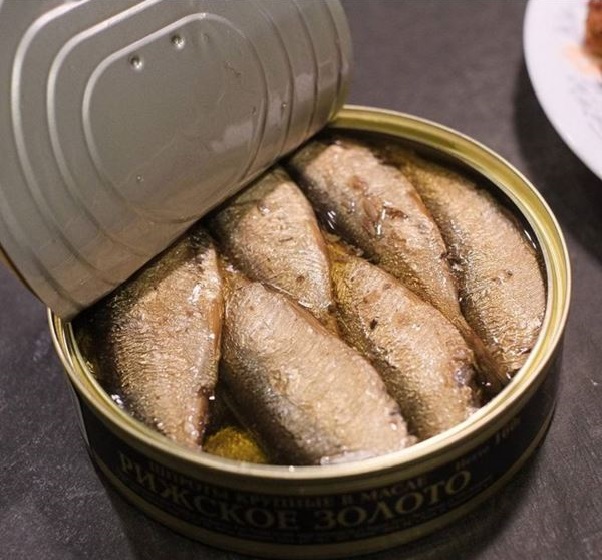
Photo courtesy of @dennisthefoodie on Instagram
Sproti (or sprats) are small fish canned in oil and they’re very popular in Russia. They are rather potent, but put it on some European dark bread with a thin sliver of butter and you’ll be glad you bore through the initial odors.
#SpoonTip: If you’re not into oily, salty, smoky or fishy foods, you might not be so into this.
7. In fact, don’t let different, new, weird-looking foods in general scare you

GIF courtesy of giphy.com
Did I have this same Ben Wyatt reaction when my babushka talked to me about eating veal tongue? Did I get grossed out hearing about cow brains? Hell yeah. But did I revel in their creamy textures and smoky flavors once I tried them? Absolutely. Being a picky eater just means missing out on great stuff.
8. Food can bring people together
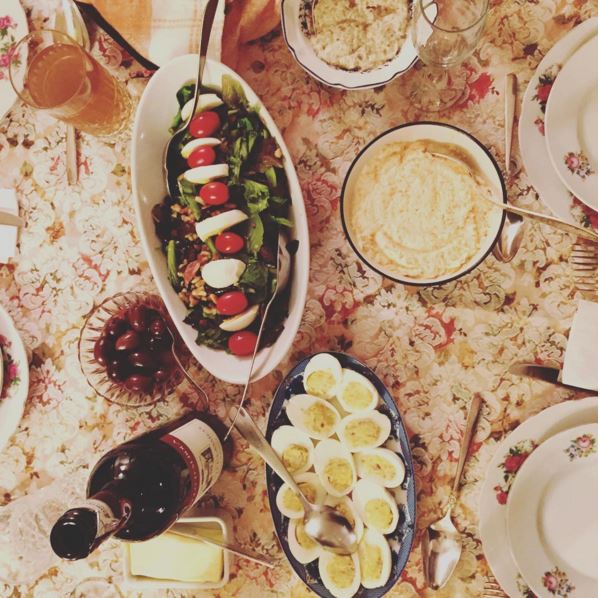
Photo courtesy of @laphilanyfood on Instagram
Sitting down to dinners with my grandparents, them telling me about different foods, the recipes they use, the different recipe changes they’ve implemented this time around, and what they used to eat back in the old country have been an important part of my upbringing.
Through our meals together, I’ve gotten a glimpse into their world, a glimpse into their culture as Russians and as Jewish refugees, and simply just as my grandparents.


